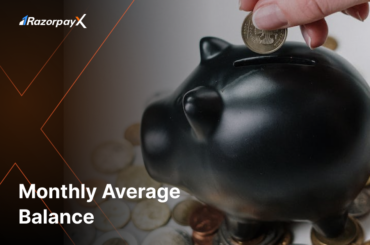SME loan eligibility refers to the set of criteria that businesses must meet in order to be considered eligible for an SME loan. The eligibility criteria may vary from lender to lender, but generally lenders look at the business credit score before sanctioning a loan amount, especially if the loan is not backed against any collateral. However, businesses that are at their nascent stage may struggle to obtain an SME loan because of a lack of business credit score, among other factors.
What is a business credit score?
A business credit score is a numerical representation of a business’s creditworthiness. This score is calculated based on the business’s credit history, payment history and other financial data. The score is used by lenders, creditors and other financial institutions to assess the risk of lending to the business.
Why is business credit score important for SME loan eligibility?
 When SMEs apply for a loan, lenders assess the creditworthiness of the business to determine whether to approve the loan and at what interest rate. A good credit score indicates that the business is:
When SMEs apply for a loan, lenders assess the creditworthiness of the business to determine whether to approve the loan and at what interest rate. A good credit score indicates that the business is:
- Financially stable
- Has a good track record of repaying debts
- Less risky to lend to
On the other hand, a low credit score suggests that the business has a history of:
- Missed payments
- High debt levels or
- Other financial issues that could make it risky to lend to
The impact of business credit score on SME loan eligibility can be significant. According to studies, around 85% of small businesses remain underserved in terms of credit due to lack of credit history, business vintage, etc.
Improving business credit score to increase SME loan eligibility
 If an SME’s credit score is preventing it from obtaining financing, there are several steps that the business can take to improve its creditworthiness. These include:
If an SME’s credit score is preventing it from obtaining financing, there are several steps that the business can take to improve its creditworthiness. These include:
- Paying bills on time: Late payments can have a negative impact on the business credit score. Paying bills on time is one of the easiest ways to improve the score.
- Reducing debt: High debt levels can make a business appear risky to lenders. Reducing debt can improve the business’s credit utilisation ratio and increase its creditworthiness.
- Checking credit report regularly: Checking credit reports regularly can help identify errors or inaccuracies that could be negatively impacting the credit score. Disputing these errors can result in an increase in the credit score.
- Building credit history: If the business has a limited credit history, opening a business credit card or obtaining a small loan can help establish credit history and improve the credit score.
Can personal credit score affect SME loan eligibility?
It can in certain types of businesses. For instance:
- In sole proprietorship, where the business is owned and operated by one person who is responsible for all aspects of its functioning and growth, the owner’s personal credit score may be regarded as the business credit score since they usually provide a personal guarantee. As the owner of a sole proprietorship is responsible for clearing any outstanding debts, their financial standing and credit score could have an impact on their business loan eligibility.
- However, in the case of partnerships, the personal credit score of the founders or owners would not have any impact on the business loan eligibility. Partnerships are similar to sole proprietorships in that partners are liable to repay any debts, so their personal credit scores are also assessed when applying for a loan.
- Private and Public Limited Companies are typically larger and more complex businesses with their own legal standing and separate credit profiles that reflect their financial history and current status. In such cases, the personal credit score of the business owner is not considered for loan approval.
Types of business credit options that consider personal credit score for SME loan eligibility
There are several types of business credit options that consider personal credit score:
-
- Business Credit Cards: Some business credit cards require the business owner to provide a personal guarantee, and their personal credit score will be considered in the approval process.
- Business Lines of Credit: Similar to business loans, business lines of credit may require a personal guarantee, making the owner’s personal credit score a factor in the approval process.
- Business Leases: When leasing equipment or space, a personal credit score may be considered if the business owner provides a personal guarantee.
What is considered a good business credit score for SME loan eligibility?
In India, different credit bureaus may use different scoring models to calculate a business credit score. Generally, a business credit score of 750 or above is considered good and may increase the chances of obtaining loans and other forms of credit at favourable terms. However, lenders may have their own specific criteria for evaluating business credit scores, and other factors such as the business’s financial history, cash flow, and collateral may also play a role in the lending decision. It’s important for SMEs to regularly monitor their credit score and take steps to improve it if necessary to increase their chances of obtaining financing at favourable terms.
Introducing Razorpay Line of Credit
Did you know? Businesses can now easily get the financial backup they need without undergoing tedious documentation and application processes.
Razorpay Line of credit is one such facility that allows businesses to gather a substantial loan amount of ₹25 lakhs. Only by having an annual turnover of ₹20 lakhs and being operational for a minimum of 1 year, businesses will qualify for the credit facility. Even the credit option comes with no collateral and additional charges which help businesses lower their loan expenditure.
FAQs
How is business credit score calculated in India?
In India, several credit bureaus calculate business credit scores using different methodologies. They consider factors such as the business’s financial statements, payment history, credit utilisation, and other indicators of creditworthiness.
What are the challenges faced by SMEs in obtaining loans in India?
SMEs in India face various challenges in obtaining loans, such as lack of collateral, inadequate documentation, and insufficient credit history. These factors can make it difficult for lenders to assess the risk of lending to these businesses.





